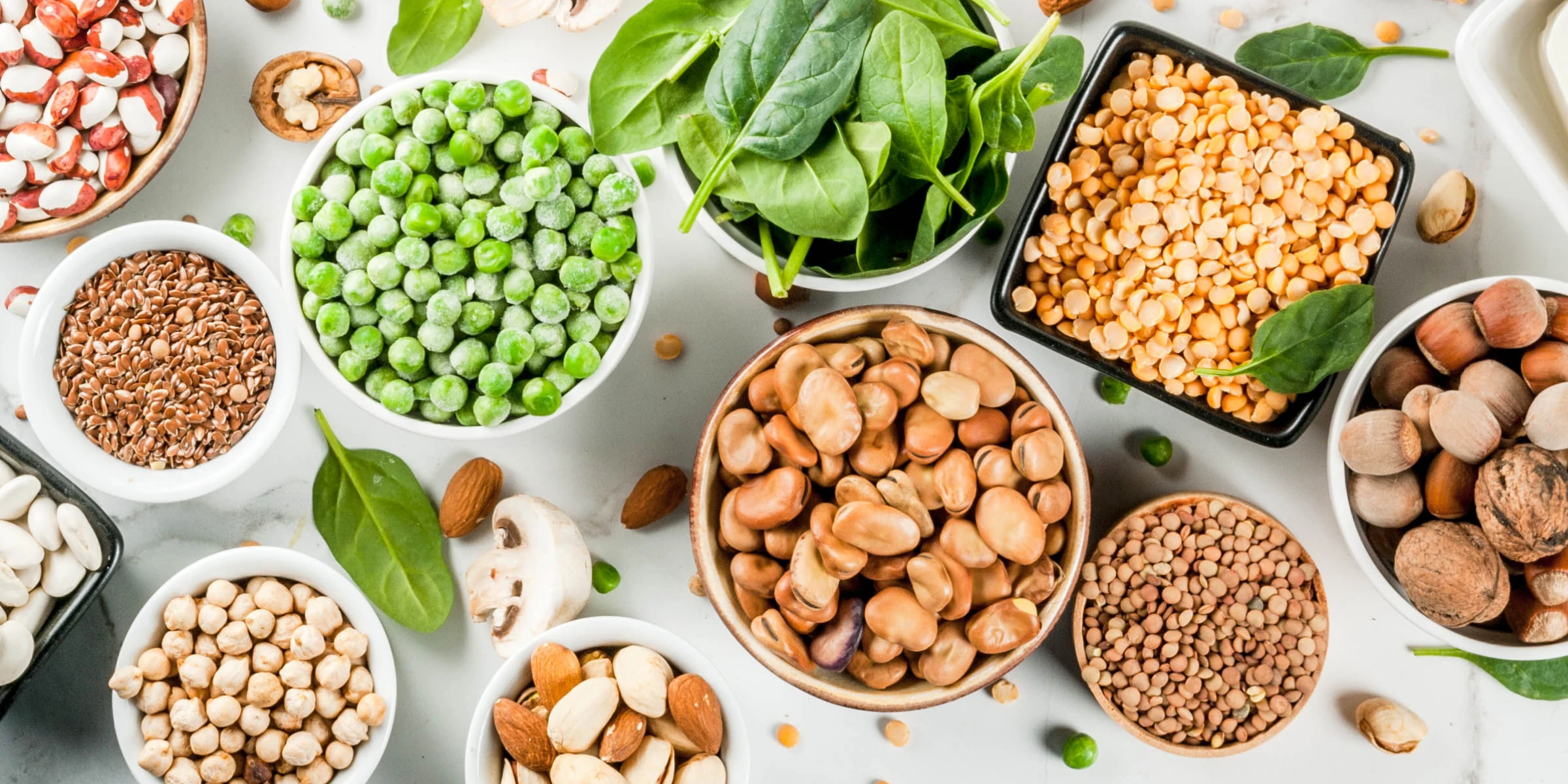


Registered Nutritional Therapist & Author
BA Hons, mBANT, AFMCP
Take any diet you have ever come across and the one thing that most have in common is restriction in some shape or form. Whether it is age old calorie counting, low-fat or the more recently popularised low-carb ketogenic (aka keto) diet they all fundamentally reduce or restrict certain foods. We also know from significant data and research that in the majority of cases diets are neither sustainable nor do they actually result in longer term weight loss. In fact they may result in lowering resting energy expenditure which reduces our metabolic efficiency longer term. Furthermore they can also cause a detrimental relationship with our food and body image. There is certainly a strong argument to suggest that diets do more harm than good for many of us, but is there yet another layer on what might they be doing to our gut health?
Before we get into the nitty gritty of these caveats it is important to note that when we consider the topic of weight and metabolism it is a multi-factorial approach. It isn’t as simple as what we are, or indeed not, eating versus the amount of physical activity we are doing. Weight is not just a token system of food and movement. In fact, our weight and metabolism are governed by many different factors aside from food and exercise which may include hormones, sleep, stress, genetic predispositions, age and underlying health conditions so the notion that taking a one size fits all ‘diet’ is nonsensical when you think about it. One major factor that does surprise many people when it comes to our weight and metabolism is the health of the gut. Research now shows us that our gut microbiome influences our metabolic health in a couple of ways including blood sugar balancing, influencing appetite hormones and managing inflammation. Therefore gut health is a central part of how we manage and maintain a healthy weight so we need to understand that anything we do that might compromise this might ironically be impairing our ability to find a happy place weight wise too. And it is diet that is the major factor that impacts the gut microbiome so it is very much a bi-directional relationship. With that in mind lets look at some of the dieting pitfalls related to gut health…
One of the key food groups we need to support and nourish a healthy gut microbiome is fibre. Fibre is found in all plant-based carbohydrates to include vegetables, fruit, whole grains and nuts & seeds. It is also not just about quantity of fibre but crucially diversity which means we need a wide variety of these fibre sources in our diet. Therefore if we are following any kind of carbohydrate restricting diet we will miss out on many of these sources. Take the keto diet for instance which is based around a macronutrient split of super low carb and high fat. Keto typically omits all whole grains, starchy veg such as potatoes, parsnips and other tubers, beetroot, carrots and butternut squash as well as most fruit. We are then left with a much narrower choice of fibre sources which means we are cultivating less of a diverse gut microbiome and we know that this is key to a healthier and happier gut. Keto is very popular at the moment but there are many other predecessor low carb diets, remember the Atkins diet famously promoting eating cheese and bacon? Or paleo which had a spike of interest around 10 years ago omitting all grains. If we take it to the absolute extreme the carnivore diet is literally just focused on meat only which would literally starve the microbiome of its essential fuel. With little to no nourishment this can leave our microbiome completely deprived of its main food source. Put simply low carb diets seriously suck for our gut.
Another major area we need to be aware of are the countless amounts of ultra-processed diet products such as low fat, low carb or even certain gluten-free and plant-based products. The latter two might be for different reasons than weight loss diets but nevertheless they all share a similar problem for our gut in that they can often contain a myriad of chemical substances such as emulsifiers, thickeners, additives and artificial sweeteners. These help to provide qualities such as mouth feel, binding, sweetness and palatability to make up for some of the nutrients or ingredients that are often removed or reduced. However these same chemicals are the ones that we know have a directly damaging impact to the health of our microbiome. In addition, it has been shown that artificial sweeteners may not also live up to their promise of having zero impact on weight management and in fact may have a detrimental effect. These products are often marketed to us as ‘healthier’ versions when in fact they are often just a bunch of chemicals.
This leads nicely onto the next point in that we need to focus on quality over quantity which is massively overlooked when considering some of these products and even more specifically in diets such as calorie counting and macro tracking on apps. Logging calories and macros might show how much of something we are eating but it gives zero feedback in terms of the quality of the foods we are eating. So we could be hitting all of the calorie or macro targets but it doesn’t tell us how much and how diverse our fibre sources are or whether we are just loading up on some of the aforementioned products just to fit within our allowance. Furthermore there has been research to suggest that severe calorie restriction can disrupt the balance of the gut microbiome and decrease bacterial abundance. All things considered calories and tracking are not an accurate measure of how healthy our diet is. Plus they are extremely time consuming, potentially anti-social and can lead to obsessive patterns of eating.
One of the other major diet crazes that seems to be gaining a lot of popularity in recent years is intermittent fasting and whilst this can work for some people it can also be contraindicated for others. However it also very much depends on what we are eating when we are eating which circles back to the above point of quality of food. That being said, it has been shown that some fasting is necessary to allow the gut to manage inflammation and other reparative processes so allowing time between meals and not eating too close to bedtime to allow sufficient time overnight can help us to support this without taking it too extreme. It sounds boring but three meals per day and leaving 3 hours before bed will pretty much do that.
There is really only one ‘diet’ that supports a healthy gut, and that is the Mediterranean diet. I put diet in quotations as to be honest it is much more of a way of life than a diet per se but it has had an extensive amount of research and data around its impact on many different aspects of our overall health and wellbeing including gut and metabolic health. This is a diet that encompasses all macronutrient groups with a focus on getting fibre from a wide and diverse range of sources including whole grains, vegetables and fruit, and dietary fat predominately from foods such as extra virgin olive oil, oily fish, some full fat dairy and small amounts of red meat. Wine is also believed to form part of the diet, in moderation of course. There is no sense of elimination or restriction and in fact focuses on abundance, especially with regards to fibre. There is also a real togetherness around meal times and collective eating. So if we do want to find a way of eating that nourishes our microbiome and our sense of enjoyment it has to be Mediterranean all the way.
And…if we want to positively enrich our gut further we can always include a side serving of ION* too.
REFERENCES
Dulloo AG & Montani JP (2015) ‘Pathways from dieting to weight regain, to obesity and to the metabolic syndrome: an overview’ Obes Rev. 2015 Feb;16 Suppl 1:1-6. doi: 10.1111/obr.12250. Available online https://pubmed.ncbi.nlm.nih.gov/25614198/
Dulloo AG, Jaquet J, Montani JP & Schutz Y (2015) ‘How dieting makes the lean fatter: from a perspective of body composition autoregulation through adipostats and proteinstats awaiting discovery’ Obes Rev. 2015 Feb;16 Suppl 1:25-35. doi: 10.1111/obr.12253. Available online https://pubmed.ncbi.nlm.nih.gov/25614201/
Rounsefell et al (2020) ‘Social media, body image and food choices in healthy young adults: A mixed methods systematic review’ Nutr Diet. 2020 Feb;77(1):19-40. doi: 10.1111/1747-0080.12581. Epub 2019 Oct 3. Available online https://pubmed.ncbi.nlm.nih.gov/31583837/
Lundgren P & Thaiss CA (2020) ‘The microbiome-adipose tissue axis in systemic metabolism’ Am J Physiol Gastrointest Liver Physiol. 2020 Apr 1;318(4):G717-G724. doi: 10.1152/ajpgi.00304.2019. Epub 2020 Feb 18. Available online https://pubmed.ncbi.nlm.nih.gov/32068441/
Bohan R et al (2019) ‘Gut microbiota: a potential manipulator for host adipose tissue and energy metabolism’ J Nutr Biochem. 2019 Feb;64:206-217. doi: 10.1016/j.jnutbio.2018.10.020. Epub 2018 Nov 10. Available online https://pubmed.ncbi.nlm.nih.gov/30553096/
Cronin P, Joyce SA, O’Toole PW & O’Connor EM (2021) ‘Dietary Fibre Modulates the Gut Microbiota’ Nutrients. 2021 May 13;13(5):1655. doi: 10.3390/nu13051655. Available online https://pubmed.ncbi.nlm.nih.gov/34068353/
Beam A, Clinger E & Hao L (2021) ‘Effect of Diet and Dietary Components on the Composition of the Gut Microbiota’ Nutrients. 2021 Aug 15;13(8):2795. doi: 10.3390/
nu13082795. Available online https://pubmed.ncbi.nlm.nih.gov/34444955/
Rondanelli M et al (2021) ‘The Potential Roles of Very Low Calorie, Very Low Calorie Ketogenic Diets and Very Low Carbohydrate Diets on the Gut Microbiota Composition’ Front Endocrinol (Lausanne). 2021 May 14;12:662591. doi: 10.3389/fendo.2021.662591. eCollection 2021. Available online https://pubmed.ncbi.nlm.nih.gov/34054731/
Dahl WJ, Mendoza DR & Lambert JM (2020) ‘Diet, nutrients and the microbiome’ Prog Mol Biol Transl Sci. 2020;171:237-263. doi: 10.1016/bs.pmbts.2020.04.006. Epub 2020 Apr 25. Available online https://pubmed.ncbi.nlm.nih.gov/32475524/
Askari M. Heshmati J. Shahinfar H. Tripathi N. Daneshzad E (2020) ‘Ultra-processed food and the risk of overweight and obesity: a systematic review and meta-analysis of observational studies’ Int J Obes (Lond). 2020 Oct;44(10):2080-2091. doi: 10.1038/s41366-020-00650-z. Epub 2020 Aug 14. (Online). Available at https://pubmed.ncbi.nlm.nih.gov/32796919/
Richardson I.L. Frese S.A. (2022) ‘Non-nutritive sweeteners and their impacts on the gut microbiome and host physiology’ Front Nutr. 2022 Aug 25;9:988144. doi: 10.3389/fnut.2022.988144. eCollection 2022. (Online). Available at https://pubmed.ncbi.nlm.nih.gov/36091255/
Naimi S. Viennois E. Gewirtz A.T. Chassaing B (2021) ‘Direct impact of commonly used dietary emulsifiers on human gut microbiota’ Microbiome. 2021 Mar 22;9(1):66. doi: 10.1186/s40168-020-00996-6. (Online). Available at https://pubmed.ncbi.nlm.nih.gov/33752754/
von Schwartzenberg RJ et al (2021) ‘Caloric restriction disrupts the microbiota and colonisation resistance’ Nature 595, 272–277 (2021). https://doi.org/10.1038/s41586-021-03663-4 https://www.nature.com/articles/s41586-021-03663-4
Stockman MC, Thomas D, Burke J & Apovian CM (2018) ‘Intermittent Fasting: Is the Wait Worth the Weight?’ Curr Obes Rep. 2018 Jun;7(2):172-185. doi: 10.1007/s13679-018-0308-9. Available online https://pubmed.ncbi.nlm.nih.gov/29700718/
Zeb F et al (2023) ‘Gut Microbiota and Time-Restricted Feeding/Eating: A Targeted Biomarker and Approach in Precision Nutrition’ Nutrients. 2023 Jan 4;15(2):259. doi: 10.3390/nu15020259. Available online https://pubmed.ncbi.nlm.nih.gov/36678130/
Merra G et al (2020) ‘Influence of Mediterranean Diet on Human Gut Microbiota’ Nutrients. 2020 Dec 22;13(1):7. doi: 10.3390/nu13010007. Available online https://pubmed.ncbi.nlm.nih.gov/33375042/
Accepting payments via


YourHealthBasket © 2025
detoxpeople Ltd
Registered in England & Wales 07156741
VAT reg GB 103 3641 60
Our new practitioner portal has been released and it’s now easier than ever to link a client’s account and provide them with suggestions using our new protocol system.
Convert your current cart into a protocol which can then be assigned to a linked client.